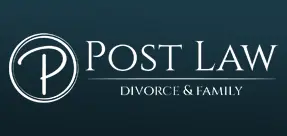DIVORCE & SEPARATION: A divorce is a legal end to a marital relationship. A legal separation has the same effect as divorce. It is a temporary determination of things like finances and child custody. Parties are not allowed to re-marry during a separation.
CHILD CUSTODY: When parents are unable to agree on custody or visitation issues, the court will decide the best interests of the minor children. While each parent’s wishes are considered, the court will ultimately decide where the child lives, who makes decisions for the child, and how much time the child spends with each parent.
CHILD SUPPORT: In Connecticut, parents are legally obligated to financially support their children. Courts will consider the needs of a minor child and each parent’s ability to pay. Child support is determined based on the state’s Child Support Guidelines.
ALIMONY: Alimony is money paid by one spouse to another either during or after divorce. Alimony allows a spouse who is disadvantaged to maintain the same standard of living as when they were married.
